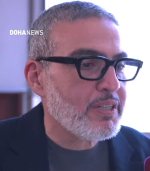
Prime Minister David Cameron said he has seen off attempts to change European laws on migration which could have stopped the UK from sending asylum seekers back to other EU countries.
The UK was backed by Germany in successfully opposing the proposals at a European Council summit in Brussels which has been dominated by plans for the bailout of the troubled Greek economy.
Mr Cameron confirmed that he has received assurances that Britain will not be called upon to contribute to EU financial support for Greece and vowed he would be "vigilant" to ensure that the UK was not sucked into the multi-billion euro bailout.
He also called on Europe to lift the red tape burden on small businesses to help the continent escape from its economic crisis. British calls for businesses with 10 employees or fewer to be exempted from most Brussels regulation have won support from several other EU states, he said.
With up to one million people believed to have fled Libya during the current unrest and tens of thousands attempting to cross from North Africa into Europe, the European Commission has floated proposals to suspend the so-called Dublin arrangements which require asylum seekers to be returned to the country through which they entered the EU.
The change could mean an additional influx of migrants to Britain, which is a magnet for many people who enter the EU by clandestine routes via countries such as Italy, Greece and Spain.
At a press conference at the end of the two-day summit, Mr Cameron said: "I was worried before this European Council about potential proposals to suspend the Dublin arrangements that allow us to return asylum seekers to the country from which they have come.
"Britain and Germany together made sure that these proposals aren't even referred to in any way in the council conclusions. I think that is important. We want controlled migration in Europe and controlled migration above all in Britain."
Mr Cameron said that after "quite a difficult start some months ago", the EU had now achieved "real unity and purpose and political will" over Libya.
"I believe that we must be patient and we must be persistent because I think the time pressure is on Colonel Gaddafi and his regime. It is not on us," he said.
Photo by AlanWCollins, Press Association




































